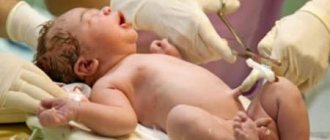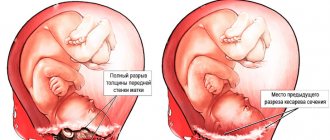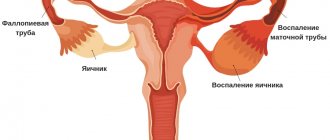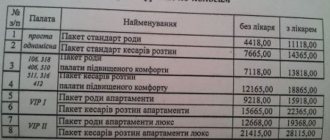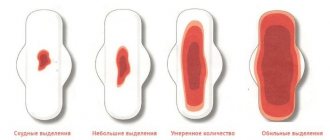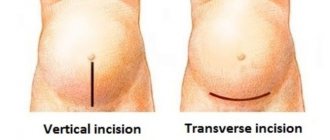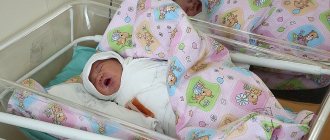However, despite this, many couples do not dare to take this step, since disputes between adherents of innovative medicine and conservatives regarding the IVF procedure have not subsided for decades.
Conservatives are of the opinion that conception should be natural, and infertility can be treated with various effective methods, rather than resorting to in vitro fertilization. Innovators rightly believe that time does not stand still and medicine is rapidly developing in the field of reproductive technologies. Which one is right? This question, as a rule, raises great doubts among many couples who dream of becoming parents after being diagnosed with infertility.
Therefore, it is necessary to dispel all misconceptions and rumors so that infertile couples have the opportunity to decide on IVF and get a chance to become parents.
There are often rumors that women experience severe pain during artificial insemination, and the child is born sick or worse, disabled. So is this fact or fiction? Let's look at these issues from a scientific point of view.
Want to know the whole truth about IVF?
You've come to the right place! IVF is our specialty!
Conception “in vitro” – the birth of a sick baby
According to reproductive specialists, this is partly true. A child conceived through IVF may indeed be born with some congenital pathologies, such as Down syndrome, heart defects, diseases of the cardiovascular system, and so on. However, you should not take this as an integral fact; there is only a small probability of developing pathologies. In vitro fertilization is often performed for women suffering from various diseases. Moreover, after successful fertilization, doctors use therapeutic methods that can harm the health of the unborn baby.
However, it is worth remembering that all procedures are carried out under round-the-clock medical supervision; therefore, at the first suspicion of such a problem, doctors promptly take measures to eliminate them.
There is also an opinion that children who grow up after IVF conception will have problems conceiving. It is not true. Typically, boys are more likely to inherit infertility from their father at the genetic level.
Registration
IVF methods have been actively used all over the world for more than thirty years. During this time, the first children conceived in this way managed to grow up and show that they were no different from other babies. They have good health, are susceptible to common diseases (these are not super heroes, but ordinary people) and, importantly, some of them have long since started families and given birth to their own children.
In Russia they are very sensitive to the use of this technique. In the case of IVF fertilization, after registration with a gynecologist, a long obstacle course begins for the woman, consisting of frequent visits to the doctor, an endless number of tests and more ultrasound examinations. Do you still remember how tiring it is to go to the clinic every time and wander from office to office with an appointment sheet? For mothers who have undergone IVF, this is threefold familiar. As they say, very good is also bad.
But this is just the beginning of the journey. Now we will touch on the question: IVF childbirth, what is it? And in the process of examining it, we will dispel most of the fears and figure out what the expectant mother may face.
IVF is in any case a multiple pregnancy
Not always! With artificial insemination, in some cases multiple pregnancies are observed, since for a greater likelihood of successful fertilization, several fertilized eggs are sometimes introduced into the uterus, rather than just one. But even this feature of the IVF procedure does not guarantee egg implantation. In addition, artificial insemination does not lead to a successful result in every case, much less the birth of twins or triplets. But after IVF, the likelihood of getting pregnant is much higher, unlike natural conception.
In multiple pregnancies, babies are often born premature. Therefore, in the first year of life they need special therapy and good care, after which they will not lag behind in development.
The IVF procedure is only for “age” women 35+
It's a delusion. The younger generation of girls also suffers from the current environment and the rapid development of female diseases, as a result of which they have problems with conception. Therefore, not only women from 35 to 45 years old often cannot conceive a child. In addition, men have problems with sperm activity, without even realizing that conception is not their fault.
Women over 40 years of age find it difficult to get pregnant due to physiology, so they more often turn to reproductive specialists than young girls.
However, doctors do not agree to perform in vitro fertilization in every case due to the minimal chances of a successful completion of the procedure.
Women's health deteriorates during IVF
This is partly true. With the formal attitude of a fertility doctor, when he tries to ensure conception at any cost and does not think about the consequences, the patient develops liver problems, hormonal imbalance, and ovarian hyperstimulation syndrome is also possible. But such cases are extremely rare; as a rule, highly qualified specialists conduct thorough preparation for the in vitro fertilization procedure, including diagnostics and the correct selection of medications.
If a woman strictly follows all medical instructions, her long-awaited conception and IVF birth will be successful.
Caesarean section or natural birth - which is better?
If a woman knows how natural childbirth goes, then she will understand that a cesarean section is radically different from the physiological birth process. In recent years, doctors have been reconsidering their views on surgical childbirth and resorting to them only when absolutely necessary. In the absence of absolute medical indications for a caesarean section, a woman is recommended to give birth on her own.
Childbirth during a cesarean section is quick and abrupt, while the woman recovers longer because she underwent a real surgical operation, and the child adapts to the environment more difficult due to the abrupt transition from one environment to another.
In the case of natural childbirth, this situation is excluded. The woman recovers faster, the baby is put to the breast in the first minutes of life and perceives the surrounding reality with less stress.
IVF causes hormonal imbalances and excess weight
This is partly true. Weight gain in women who have undergone artificial insemination cannot be ruled out due to hormonal stimulation of the ovaries. However, this is a reversible process and after the birth of the baby, all indicators of her weight are normalized, and her usual weight will gradually return. The main thing is that the IVF procedure and natural childbirth are carried out by an experienced specialist who will not get carried away with repeated stimulation of hormones, causing significant disturbances in the hormonal process. Typically, professional fertility specialists do not perform multiple procedures in a short period of time.
As a rule, at least 3-4 months must pass for the next IVF. At the same time, doctors always take into account the reasons for the failure of the previous in vitro fertilization procedure.
Stages of natural childbirth
Every expectant mother awaits the onset of childbirth and strives to approach this difficult process as responsibly as possible. That is why it is necessary to know how physiological childbirth proceeds, what stages a woman must overcome.
The first stage - contractions
- Childbirth begins with painless, rare contractions, which at first resemble regular contractions of the uterus. In this case, a woman may be at home, not yet realizing that she is actually going into labor.
- Contractions begin to intensify, their pain and regularity increase - every 5 minutes or more often. At this time, your water should break. You need to go to the maternity hospital and at the same time remember the technique of proper breathing, mastered in courses for expectant mothers. It helps relieve pain during contractions and improve oxygen supply to the baby.
The second stage - pushing
- As soon as the cervix is close to full dilation, the desire to push appears.
- You need to take the right posture and breathe correctly. It is allowed to do pain-relieving massage of the lumbar region.
- It is important during attempts to control what is happening around you and obey the doctor in everything, fulfilling his requirements exactly. Attempts end with the birth of a child.
The third stage is the expulsion of the placenta
- The placenta is born quite quickly - within a few minutes after the birth of the baby.
- During the expulsion of the placenta, the woman feels weak contractions.
- The doctor must ensure the integrity of the placenta.
- If everything is in order, the woman’s birth canal is examined and stitches are applied if necessary.
- The baby is weighed, measured and placed on the mother's breast for the first time.
This course is typical for most women in labor, but at each stage specific features and problems may arise that the doctor must address.
After IVF - giving birth only by caesarean section
In part, this is true. Most patients cannot give birth naturally, but this has absolutely nothing to do with the baby’s health. A caesarean section is performed for only one reason – the general condition of the mother’s body, since most expectant mothers have chronic diseases, weakened immunity and cannot give birth on their own. If the expectant mother is healthy and expecting one child, then the birth will be natural. Cesarean section is also often used when expecting twins or triplets.
In any case, childbirth after IVF (caesarean or natural) does not occur without complications if the expectant mother has a weakened body or a large fetus.
Indications for surgery
For quite a long time, one of the indications for cesarean section was IVF. Natural childbirth is impossible in some cases. There are main indications for elective caesarean section:
- long-term infertility;
- malposition;
- woman's age;
- chronic diseases of the mother;
- genital herpes during an exacerbation;
- acute oxygen deficiency in the fetus;
- neurological diseases;
- poor vision of the expectant mother (consultation with an ophthalmologist is necessary);
- gestosis;
- anatomical features (narrow pelvis, symphysitis);
- large fruit;
- IVF complicated by the health status of the mother or child;
- multiple pregnancy;
- a history of several abdominal surgeries;
- repeat IVF, especially if there are complications.
At the moment, many doctors believe that it is necessary to give a woman the opportunity to give birth on her own if she has no health problems.
The first artificial insemination is always unsuccessful
Not true. According to statistics, more than 40% of women become pregnant after the first IVF. It is possible that the first fertilization will fail in most cases, but not always. The younger a woman is, the higher her chance of becoming a mother. Approximately up to 70% of successful fertilizations occur in young and healthy women under 35 years of age. At a more mature age and in the presence of chronic diseases, several IVF procedures may be necessary.
By the way, this fact should be taken into account by those patients who do not have the opportunity to pay a lot of money for each attempt at artificial insemination.
The best method of infertility treatment is IVF
It is a myth. In fact, everything is not like that. In vitro fertilization is not a method of treating infertility in women. The procedure only involves helping to conceive a child. In fact, this is a method of effectively combating infertility. However, even after successful IVF and pregnancy, no one can guarantee that the period of gestation and childbirth will take place without any problems. Therefore, to avoid complications after conception, you should regularly see a doctor with extensive experience, since women with a “bouquet” of diseases, including gynecological pathologies, often resort to the in vitro fertilization procedure.
The expectant mother and baby should be under close medical supervision.
Features of modern IVF
Over the years, artificial insemination techniques have improved and become more accessible. Previously, a woman was implanted with 3 embryos to increase the chances that at least one would take root. Now, with the help of new auxiliary methods, about 95% of transplanted embryos continue to develop successfully. This made it possible to reduce the number of transplanted embryos to 1-2 and reduce the risk of complications.
In vitro fertilization in modern conditions gives a woman a choice: to give birth on her own or with the help of an auxiliary operation. But in order to give birth on your own, you need to obtain the consent of the attending physician, as this may threaten the lives of the mother and child. At the IVF clinic on Petrovka, after in vitro fertilization, you can purchase a pregnancy management program.
IVF is an expensive procedure, is that true?
This is partly true. As a rule, the IVF procedure is carried out in conjunction with the ICSI technique (injection of sperm into the cytoplasm). Such a range of medical services, of course, cannot be cheap. The cost includes a lot of medical procedures, a diagnostic course, drug therapy and other factors. Accordingly, in some cases the amount for in vitro fertilization may be prohibitive. You need to be prepared for this.
Doctors at the AltraVita clinic have been helping couples with infertility for 17 years. Therefore, if you have any doubts about artificial insemination, you should consult a fertility specialist.
The feasibility of this procedure may arise in the following cases: the woman’s age (after 40 years), lack of her own ovulation, low ovarian reserve and, most importantly, a great desire to give birth to a long-awaited baby. Infertility is not a death sentence.
The success of the final result after IVF depends not only on the condition of the woman’s body, but also on the qualifications of specialists. In any case, you don’t need to stop on the path to your goal, and the specialists of the AltraVita clinic will help with this.

